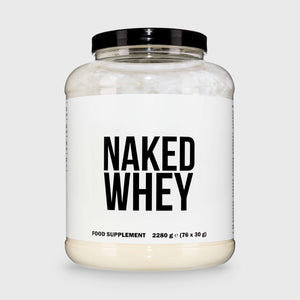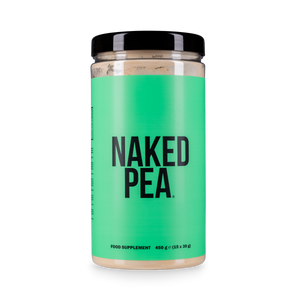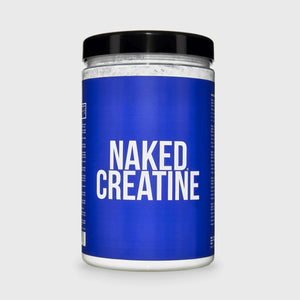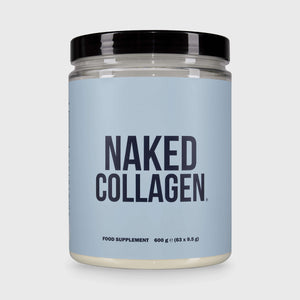Emerging research continues to emphasize the importance of gut health. In addition to digestive health, a healthy gut can boost the immune system, regulate blood sugar, improve nutrient absorption, and boost mood and brain health.
Although it is possible to achieve and maintain a healthy gut without the use of supplements, most people can benefit from the addition of a few science-backed, gut-healthy supplements. Including certain gut-boosting supplements in your daily routine can complement a healthy whole-foods based diet, as they can strengthen your microbiome and improve the integrity of the gut lining so it can function at its best.
Here are some of the best evidence-based supplements for gut health.
1. Glutamine
L-glutamine is an amino acid that plays an integral role in repairing the intestinal wall. In fact, it is the most abundant amino acid in the body. L-glutamine helps to heal all tissues of the body but particularly benefits the digestive tract. By healing and strengthening the walls of the intestines, nutrient absorption is improved.
Glutamine helps regulate the tight junction cells of the intestinal lining. In individuals with leaky gut, or increased intestinal permeability, tight junction cells are damaged. In turn, proteins can leak through the intestinal lining causing an inflammatory reaction. Glutamine, however, can improve the integrity of these cells and help strengthen this lining. Plus, glutamine reduces inflammation in the intestines which reduces intestinal permeability and improves the function of the gastrointestinal tract.

2. Collagen Powder
Collagen is a structural protein that is found in tissues, bones, and muscles. A lot of collagen is also found in the lining of our gut. Although the human body naturally makes collagen, consuming supplemental collagen likely provides an additional benefit for gut health.
The collagen protein is made from the amino acids glycine, proline, and hydroxyproline. Research suggests that in the small intestine, glycine is needed to create glutathione, an important antioxidant that protects and heals the gut lining. Plus, glycine is involved in an important detoxification process in the intestines as well.
Collagen powder is easy to add to smoothies, soups, oatmeal, and even coffee drinks. What’s more, collagen powder is tasteless and does not change the texture of the food or drink it is added to. It’s important to choose a supplement free of added ingredients and ideally sourced from grass-fed and pasture-raised animals to ensure the best quality, such as our collagen peptides protein powder.

3. Probiotics
Probiotics are beneficial live bacteria that naturally live in our bodies. Many of these bacteria live in our gastrointestinal tract. In recent years, probiotics supplements and probiotic-rich foods have gained significant hype in the health and wellness industry as a means to improve the bacterial balance in our gastrointestinal tract and improve gut health. Probiotic-rich foods include yogurt, kimchi, sauerkraut, miso, and tempeh, for example. However, it can be challenging for some to consume probiotic-rich foods on a daily basis, which is why supplements can help.
It is best to choose a probiotic supplement that contains both lactobacillus and bifidobacterium. Although there are many strains of bacteria that can offer benefits, these two strains are among the most promising for their role in improving the bacterial makeup of the digestive tract, reducing inflammation, and improving symptoms of gastrointestinal diseases. Naked Gut contains seven natural ingredients including prebiotic fibers, probiotics, glutamine, and inulin, for optimal gut function.

4. Prebiotics
It’s difficult to encourage probiotic supplements without discussing prebiotics.
Prebiotics can be thought of as the fuel that probiotics need to survive. Contrary to probiotics, prebiotics are not live bacteria but are the complex carbohydrates and fibers that probiotics feed off of.
The fermentation of prebiotics in the gut produces short-chain fatty acids, which enhances the integrity of the gut barrier, improve nutrient absorption, and reduce inflammation in both the digestive tract and throughout the body.
Foods that are high in prebiotics include onions, garlic, artichokes, bananas, and asparagus, among others. There are also several supplements that contain prebiotics, which are often encouraged to be consumed along with probiotics.
Our fiber supplement Organic Naked Fiber can also help you promote prebiotics in your gut. It contains only one ingredient: dehydrated pulp of baobab fruit grown in Southern Africa.

5. Psyllium Husk
A great natural supplement for improving gut health is psyllium husk. Psyllium husk is a fiber that can be taken in powder or capsule form. It provides gentle encouragement for stool formation and improves the motility of the gastrointestinal tract, thereby easing constipation and making for more normal bowel movements. Supplementing with psyllium husk has also been shown to improve the bacterial makeup in the large intestine, further improving the motility and nutrient absorption in the digestive system.
Psyllium husk can be used in the short term to relieve constipation, or it can even be safely integrated into your daily routine to help promote regularity and a beneficial microbiota.
6. Adaptogens
Adaptogens are natural compounds that can help to reduce stress levels in the body. It is understood that the gut and the brain are highly connected – the gut-brain axis is the biochemical signaling that occurs between the gut and the central nervous system. Because of these tightly connected systems, it is also understood that psychological stress influences our digestive health.
Adaptogens help support our adrenal glands which in turn can reduce elevated stress hormones in our body. The best adaptogens for gut health include ashwagandha, ginseng, licorice, and holy basil. Adaptogens can reduce inflammation, help alleviate bloat, and reduce gas. Some adaptogens such as ginseng may improve the balance of gut bacteria, too.
While it’s possible to get separate adaptogen supplements, it may be more worthwhile to get a supplement that has a combination of adaptogens. Naked Greens, for example, is a great, all-encompassing gut health supplement. It not only contains dehydrated organic green vegetables, but it has probiotics, prebiotics, ashwagandha, and ginseng.

Should you take supplements to improve gut health?
Although supplements can absolutely enhance your health, it is always important to focus on maintaining a healthy, whole-foods based diet first. Aiming to maximize your nutrition status from the foods you eat is the best way to achieve optimal health. To boost gut health from your diet, aim to consume probiotic-rich foods, hydrate well, consume a diet high in fiber, and reduce added sugars and processed foods.
However, gut-healthy supplements such as the ones outlined in this article should be used to provide additional benefits and fill in the gaps where your diet may be lacking. A healthy gut is at the root of your overall wellness – if you focus on nourishing your gut lining and microbiota balance, you will get more nutrients out of your food, boost your immune system, and reduce stress levels and inflammation.






